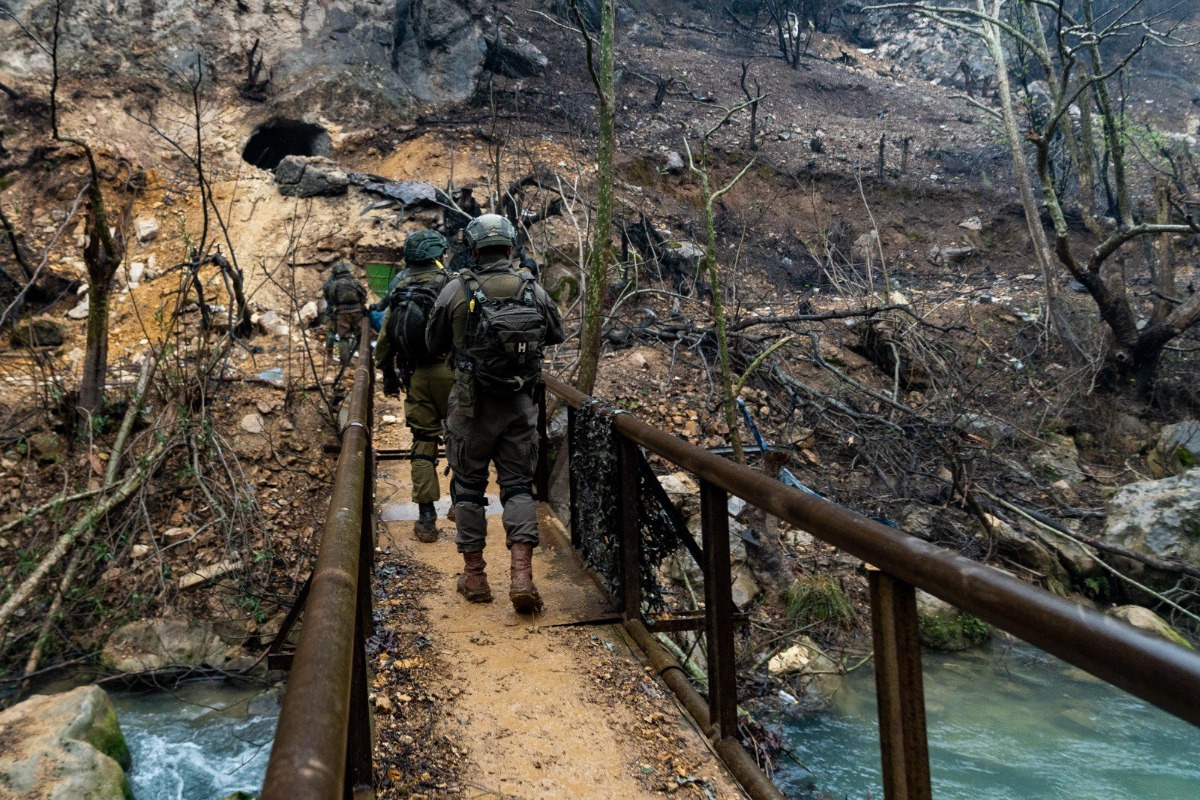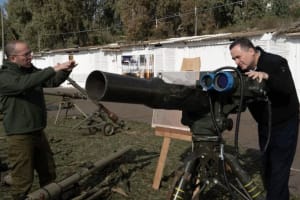After reports of partial IDF withdrawal, Hezbollah leader warns ‘Our patience may not last for 60 days'
Sheikh Qassem claims Hezbollah prevented IDF from achieving 'territorial ambitions'

Following reports that the IDF may not withdraw all of its soldiers from southern Lebanon by the end of the 60 days specified in the ceasefire agreement, the leader of Hezbollah issued a warning on Saturday evening.
"We have said that we are giving an opportunity to prevent Israeli violations and to implement the agreement, and we will exercise patience," Sheikh Naim Qassem said, before warning, "This does not mean that we will wait for 60 days.”
Reports last week and over the weekend noted that the Israel Defense Forces (IDF) are considering retaining a significant number of troops in southern Lebanon as the Lebanese army has been slow to take control of areas where the IDF had withdrawn. The Israeli military recently conducted several strikes on Hezbollah units attempting to move back into southern villages that it abandoned in the Israeli incursion.
Israel said it will not allow Hezbollah to re-establish itself south of the Litani River, and military leaders said the timing of their withdrawal is dependent on the Lebanese army's ability to assume control over the areas the IDF evacuates.
As part of the ceasefire agreement with Israel, Hezbollah must withdraw its forces north of the Litani River – around 30 kilometers (19 miles) from the border – and dismantle any infrastructure in southern Lebanon.
In his speech on Saturday, Qassem struck a militant tone and attempted to minimize Israeli achievements during the 2024 conflict.
"The leadership of the resistance determines when to exercise patience, when to take initiative, and when to respond," Qassem said. “There is no fixed timeline dictating the Resistance’s actions. Our patience is tied to the appropriate timing to confront the enemy. Our actions may precede or exceed 60 days, and when we decide to act, you will witness it directly.”
The televised speech was aired on the fifth anniversary of the elimination of two Iranian leaders: Qassem Suleimani and Abu Mahdi Al-Muhandis.
In the speech, Qassem claimed that Hezbollah prevented the IDF from advancing deeper into Lebanon. Qassem said that, in the past, Israeli forces had reached the capital Beirut within days, but during the 2024 incursion into southern Lebanon, it only penetrated a few hundred meters past the border.
Qassem also noted that during the First Lebanon War in 1982, Israeli forces reached Beirut “in a few days.” He claimed that Hezbollah prevented the IDF from reaching the Litani River, which is much further south, during the 2024 fighting.

“Whereas, in 2024, 72,000 Israeli soldiers could not reach Litani River because of the steadfast, powerful and epic resistance,” he claimed.
“Israel failed to progress because the resisting fighters held firm and steadfast against it,” Qassem maintained, asking, “Does this not indicate that the Resistance is strong, possesses deterrence, and has thwarted the enemy’s objectives?”
He accused Israel of having territorial “ambitions” in Lebanon, and said Lebanon would not exist without Hezbollah’s assistance.
In his speech, Qassem also praised other Iranian proxy groups engaged in fighting against Israel, including Hamas in Gaza and the Houthis in Yemen. He said he hoped the people of Syria would also “play a role in confronting Israel.”
Sheikh Qassem referred to Qassem Soleimani, who was killed in a U.S. drone strike in Iraq in the beginning of 2020, calling him “a strategic leader on intellectual and political levels.”
Soleimani was responsible for developing the “Ring of Fire” strategy, in which Iranian proxies harassed Israel with the ultimate goal of mobilizing efforts to destroy the Jewish state.
Israel’s recent successes in Lebanon, and the collapse of the Assad regime in Syria – which led to the fleeing of most Iranian officials from the country – are seen by many analysts as the collapse of Soleimani's strategy.

The All Israel News Staff is a team of journalists in Israel.
You might also like to read this:















